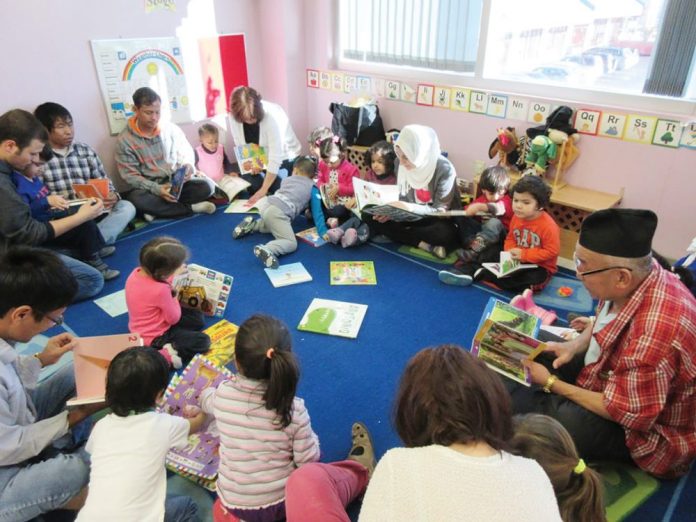By Matthew Horwood
Fewer arrivals of new immigrants to Ottawa has not translated to fewer service needs for clients of the Ottawa Community Immigrant Services Organization (OCISO).
Leslie Emory, executive director of OCISO, said there has been a 30-40 per cent decrease in new immigrants to Ottawa due to the pandemic. But because of COVID-19, the needs of immigrants have increased in the areas of food security, housing and mental health.
Thankfully, OCISO is an organization well suited to meet the increased demands. Since 1978, it has been serving approximately 10,000 immigrants and refugees every year from its three Ottawa locations, including one in Hintonburg (945 Wellington St. W.).
Emory said all OCISO programs are intended to support the settlement and integration of newcomers into Canada. When immigrants first arrive in Ottawa, they are given settlement support in “things people need to be able to know about to settle into the city,” like finding housing, getting a health card and learning to navigate public transit, Emory said.
The programs OCISO offers to newcomers are extensive and multifaceted. The organization offers free, full-time “Language Instruction for Newcomers to Canada” classes to over 125 immigrants and their children. According to Emory, students will go from having pre-literacy, (meaning they are not literate in their own language) to graduating with full language proficiency and being able to gain employment in Canada.
The Community Economic Development program provides career mentoring and networking programs, supporting newcomers in obtaining employment in their field, understanding Canadian workplace culture and building networks.
The organization’s youth programming for ages 13 to 24 supports students through workshops; special events and programs in areas of fitness and wellness, yoga, self-care and finding employment.
OCISO’s Counselling Program is uniquely equipped to support people with a history of mental health issues, or those experiencing post-migration stressors. Many newcomers to Canada have experienced trauma and may even require post-traumatic stress disorder (PTSD) support, according to Emory, and OCISO’s counsellors are specialized in assisting clients with those issues.
The final pillar of OCISO is settlement support in schools. Emory said OCISO has over 20 counsellors in various schools across Ottawa that act as a “liaison between students, parents and teachers, to integrate them into schools and give them academic success.”
Like most organizations, OCISO was forced to make a “100 per cent pivot” to virtual services in March of last year.
OCISO transitioned back to delivering in-person services in August, only to have to pivot back online completely in December.
The pivot to online services has not been easy for many of OCISO’s more vulnerable clients.
“We’ve been working hard to support their access, but when you have language barriers and people with no knowledge of that technology, it becomes difficult. Sometimes people need privacy to receive services, and in a home with many people they may not have that,” Emory said.
Even still, OCISO has continued working diligently to connect immigrants with appropriate supports, including through collaborating with dozens of community partners.
“Ottawa is an amazing city for how we connect among social service providers to provide necessary supports, and under COVID-19 it’s been no exception. There has been incredible collaboration,” she said.
2020 also marked the five-year anniversary of the arrival of Syrian refugees to the National Capital Region. Emory said OCISO was “deeply involved” in their settlement, and the organization has a large percentage of Syrian refugees in all their programs, including several working as volunteers and employees.
“In the ways our organization came together during COVID-19, we equally came together after the arrival of the Syrians in 2015. It’s been an incredible time for the community,” she said.
Going forward, OCISO plans to implement a “hybrid program” with in-person and virtual services.
“I envision that, as we hit summertime, we will see a return to normalcy,” Emory said. “Both our workers and clients are so looking forward to getting back to face-to-face services. When that happens, it will be a happy day.”
